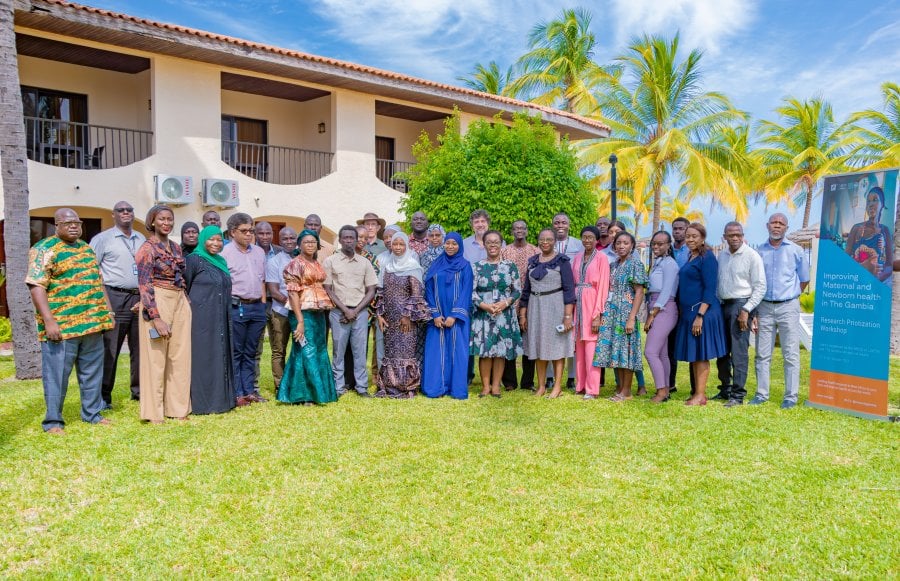
Participants included policymakers, academics, researchers, healthcare professionals, representatives of donor agencies, and other stakeholders involved in MNH in The Gambia. Prof. Umberto D'Alessandro, the Unit Director of MRCG, provided insightful remarks, highlighting the institution's commitment to advancing MNH research. He stated that “maternal and infant mortality rates are high in The Gambia and West Africa and remain a health priority issue”.
The workshop included an overview of MNH research in The Gambia presented by Mr. Sainey Sanneh, Director of Public Health Research at the Ministry of Health. He emphasized the need for evidence-based research to guide policymaking and expressed gratitude on behalf of the participants for the opportunity to contribute towards this aim.
Dr Musa Marena, Program Director of Reproductive Maternal, Newborn, Child and Adolescent Health (RMNCAH) at the Ministry of Health gave an overview of maternal and newborn health in The Gambia. He emphasized the crucial role of research in tackling maternal and neonatal mortality rates by stating “analysis of last year and 2021 indicates that most of the women dying are 25-35 years old. Last year they made up 31% of maternal mortality and this year 38%”. He continued, “we are aiming to achieve the SDG goals and strengthen our research to communicate data by moving from paper based to digital.”
The workshop concluded with a summary by Dr. Uduak Okomo, MNH Research Coordinator at MRCG, highlighting the progress made and the achievements during the two-day event. “Having a diverse group of stakeholders in the same room was a great experience. Everyone was engaged in the discussions and we had a productive meeting. We covered a comprehensive list of research questions that focused on providing better health and care for pregnant women, their newborns, and small and sick newborns in hospitals”.
She continued, “however, creating a research priority list is just the first step. It is crucial to implement it properly. In the following weeks, we will share the research priority list with the Ministry of Health and all relevant stakeholders to ensure that research is implemented, translated, and ultimately reduces the burden of disease”.
The Maternal and Newborn Health Research Prioritization Workshop was a significant milestone in The Gambia's journey towards enhanced maternal and neonatal healthcare. Through fruitful discussions, collaboration, and prioritization of research questions, the workshop laid the foundation for evidence-based policies and interventions that will positively impact the lives of mothers and newborns. The MRCG and the Ministry of Health remain committed to driving MNH research forward and implementing tangible solutions that will improve healthcare outcomes and save lives in The Gambia.
LSHTM's short courses provide opportunities to study specialised topics across a broad range of public and global health fields. From AMR to vaccines, travel medicine to clinical trials, and modelling to malaria, refresh your skills and join one of our short courses today.
